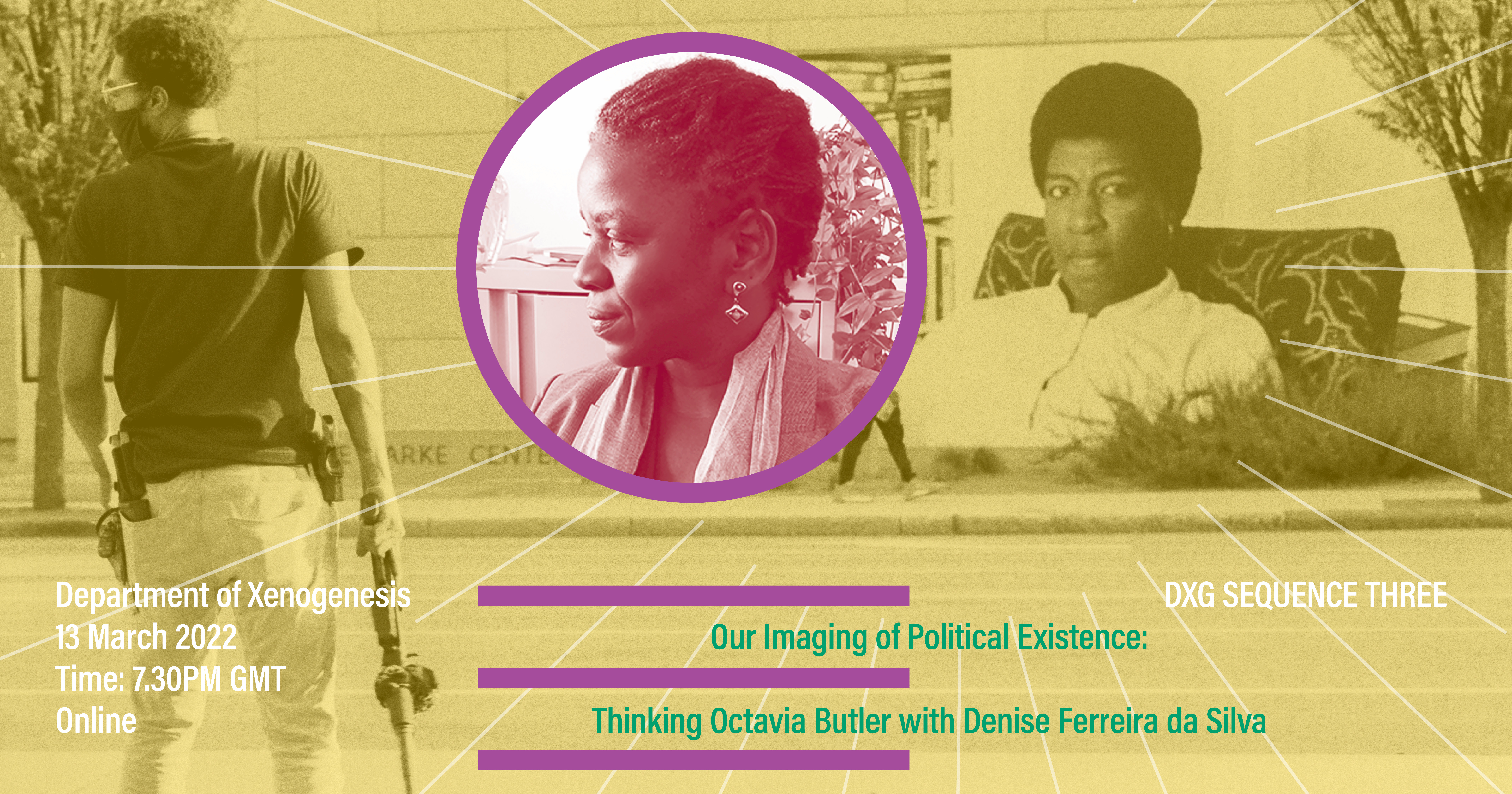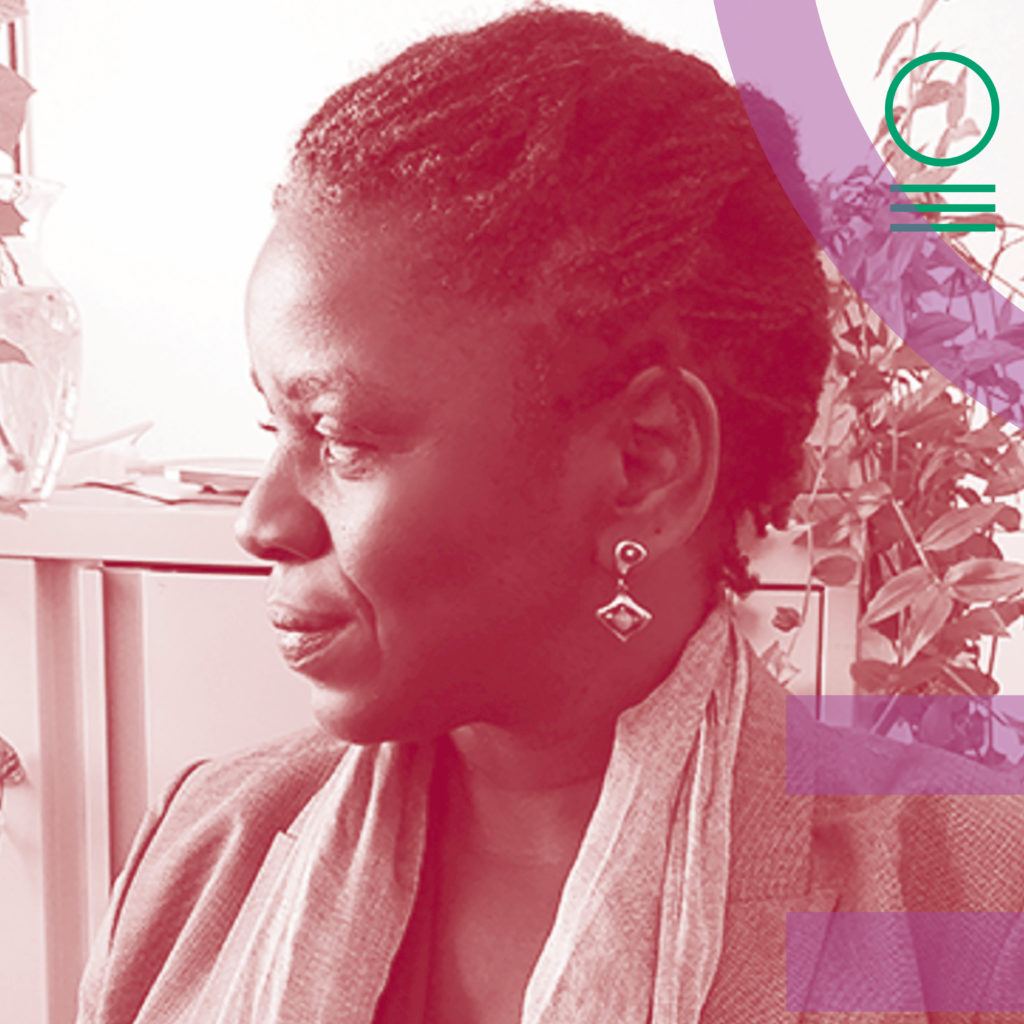An academic and practicing artist, Dr. Denise Ferreira da Silva’s work addresses the ethico-political challenges of the global present. She is the author of Toward a Global Idea of Race (University of Minnesota Press, 2007), A Dívida Impagavel (Oficina da Imaginaçāo Política and Living Commons, 2019) and co-editor (with Paula Chakravartty) of Race, Empire, and the Crisis of the Subprime (Johns Hopkins University Press, 2013). Her several articles have been published in leading interdisciplinary journals, such as Social Text, Theory, Culture & Society, Social Identities, PhiloSOPHIA, Griffith Law Review, Theory & Event, The Black Scholar, to name a few. Her artistic works includes the films Serpent Rain (2016) and 4Waters-Deep Implicancy (2018), in collaboration with Arjuna Neuman; and the relational art practices Poethical Readings and Sensing Salon, in collaboration with Valentina Desideri. She has exhibited and lectured at major art venues, such as the Pompidou Center (Paris), Whitechapel Gallery (London, MASP (Sāo Paulo), Guggenheim (New York), and MoMa (New York). She has also written for publications for major art events (Liverpool Biennale, 2017; Sao Paulo Biennale, 2016, Venice Biennale, 2017, and Documenta 14) and published in art venues, such as Canadian Art, Texte Zur Kunst, and E-Flux.
Her forthcoming book Unpayable Debt examines the relationships among coloniality, raciality, and global capital from a black feminist “poethical” perspective. Inspired by Octavia E. Butler’s 1979 sci-fi novel Kindred, in which an African-American writer is transported back in time to the antebellum South to save her owner-ancestor, Unpayable Debt relates the notion of value to coloniality—both economic and ethical. Focusing on the philosophy behind value, Denise Ferreira da Silva exposes capital as the juridical architecture and ethical grammar of the world. Here, raciality—a symbol of coloniality—justifies deployments of total violence to enable expropriation and land extraction.
She is a member of several boards including Haus de Kulturen de Welt (Berlin), International Consortium for Critical Theory Programs and the journals Postmodern Culture, Social Identities, and Dark Matter.
Since 2002, Kodwo Eshun and Anjalika Sagar of The Otolith Collective have engaged in the conception and creation of platforms that make public the research that informs their artistic, theoretical and curatorial practice. Throughout this practice runs a precoccupation with shifting the decolonial form of the essayistic towards an idea of science fiction conceived as a method for investigating the present. From this aesthetico-political process emerges a practice of platform-making that draws attention to the urgency of the present in all of its provisional, prospective and planetary dimensions. It is the urgency of this differentiated Now that animates the Collective’s desire to platform the work of Chris Marker, Harun Farocki, Anand Patwardhan, Etel Adnan, Fred Moten, Eyal Sivan, Black Audio Film Collective, Peter Watkins, Sue Clayton, Mark Fisher and Justin Barton, Silvia Maglioni & Graeme Thomson, Lamia Joreige, Naeem Mohaiemen, Chimurenga Library, Emma Wolukau-Wanamba, Pamela Phatsimo Sunstrum, Lungiswa Gqunta, Tony Cokes, Rania Stephan, Ayo Akingbade, Rehana Zaman and Onyeka Igwe throughout and beyond the UK. What unites these convenings and convocations is the necessity of bringing viewers face to face with the threat of images and the challenge of sounds so as to create the conditions for intervention in the colonised times and racialised spaces of our catastrophic present.





